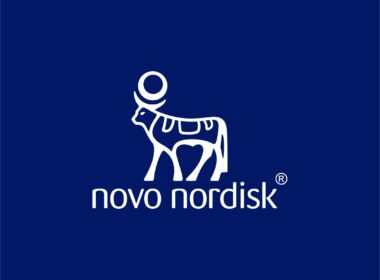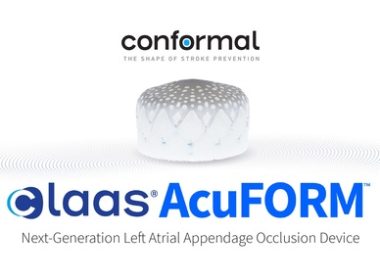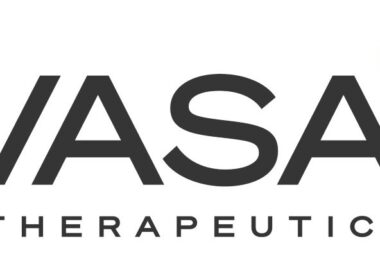Heartflow PCI Navigator
Heartflow PCI Navigator is the only integrated, AI-driven percutaneous coronary interventions planning tool that gives interventional cardiologists a patient-specific 3D model—detailing anatomy, plaque composition, and lesion-specific physiology—all aligned to optimize potential stent placement.
PLAN CALCIUM study to be presented at TCT 2025 conference highlights how AI-powered plaque analysis can inform lesion preparation and calcium modification planning NAVIGATE-PCI registry to enroll approximately 2,500 patients across approximately 30 sites to evaluate the impact of CT-guided PCI planning in real-world practice MOUNTAIN VIEW, Calif., Oct. 22, 2025 (GLOBE NEWSWIRE) — Heartflow, Inc. (Heartflow) (Nasdaq: HTFL), the leader in AI technology for coronary artery disease (CAD), today introduced Heartflow PCI Navigator, the newest addition to the Heartflow One platform. PCI Navigator is the only integrated, AI-driven percutaneous coronary interventions (PCI) planning tool that gives interventional cardiologists a patient-specific 3D model — detailing anatomy, plaque composition, and lesion-specific physiology — all aligned to optimize potential stent placement. For the first time, interventional cardiologists can plan PCIs with relevant information brought together in one intuitive view before their patients are in the cath lab. Heartflow will showcase PCI Navigator with live demonstrations at Heartflow’s exhibit booth (#2155) at the upcoming Transcatheter Cardiovascular Therapeutics (TCT®) conference, taking place from October 25-28, 2025, in San Francisco. The company will also present the PLAN CALCIUM study (abstract TCT 417) at the conference on October 26 at 8:30 a.m. PDT. PCI Navigator delivers a streamlined view of essential information for cath lab decision-making by integrating all relevant measurements — including IVUS-like and FFR-like pullback visualizations — into one seamless experience, which typically requires significant time and effort to obtain in the cath lab. “Interventional cardiologists make some of the most critical decisions in coronary care, often with limited information before a case begins. CT-guided PCI addresses that information gap, harnessing insights from the CCTA pathway into a pre-procedural plan to provide physicians the clarity they need for each case. PCI Navigator puts Heartflow at the forefront of that shift,” said Campbell Rogers, M.D., F.A.C.C., Chief Medical Officer of Heartflow. “CCTA with Heartflow analysis helps ensure that all patients warranting invasive management are directed to the cath lab, while also reducing invasive angiograms and improving efficiency. PCI Navigator enhances planning for these patients by integrating anatomy, plaque, and lesion-specific physiology for the interventionalist’s review and input before the procedure.” PCI Navigator Will Deliver a Streamlined View of Essential Information for Cath Lab Decision-making This includes: Procedural Complexity: Lesion-specific FFRCT values, stenosis, plaque location and composition, as well as percent myocardium fed by a vessel, to help understand lesion significance in context.Stent Landing Zones: Cross-sectional and longitudinal reconstructions providing lumen diameter and length measures alongside plaque morphology and stenosis severity to help precisely plan and guide procedures.Planning for Optimal Outcomes: Physiology changes along the lesion (ΔFFRCT) to ensure the stenting procedure addresses the maximal flow gradient for optimal outcomes. By bringing together information that interventional cardiologists need to plan procedures into a web-based interface, PCI Navigator may help streamline procedures with increased efficiency and clinical confidence for both patients and staff. PLAN CALCIUM Study Data to Be Presented at TCT 2025 Heartflow’s technology will be featured in new data from the PLAN CALCIUM Study. The study evaluated how pairing Heartflow Plaque Analysis insights with coronary CTA imaging and FFRCT analysis influenced the decisions of interventional cardiologists undertaking PCI in highly calcified lesions. The addition of AI-powered plaque analysis to coronary CTA, FFRCT and angiography altered plans for calcium modification in over half of lesions, demonstrating the growing potential for CT-guided planning to drive more precise coronary interventions. “Incorporating AI-driven plaque analysis into coronary CTA and lesion-specific FFRCT workflows has great potential to change how we think about lesion preparation,” said Ankitkumar Patel, M.D., M.P.H., Medical Director of the Cardiac Catheterization Laboratory at Hackensack Meridian Mountainside Medical Center, Montclair, NJ. “PLAN CALCIUM data suggest that having information about plaque composition and distribution available ahead of time can help clinicians make more informed decisions about calcium modification and device selection for our patients.” Heartflow to Initiate NAVIGATE-PCI Registry in 2026 The NAVIGATE-PCI Registry will enroll more than 2,500 patients across approximately 30 U.S. sites to assess how PCI Navigator influences physician confidence, procedural safety and efficiency, strategy and patient outcomes compared to standard care. “The NAVIGATE-PCI study is designed to address a major unmet need in how we plan and perform PCI in clinical practice,” said Ziad Ali, M.D., D.Phil., Director of the DeMatteis Cardiovascular Institute at St. Francis Hospital & Heart Center, and Co-Principal Investigator of the study. “By evaluating CT-guided PCI planning using Heartflow PCI Navigator, we aim to better understand how this technology can reshape everyday interventional practice and elevate patient care.” Broader clinical use of PCI Navigator is expected to begin with the NAVIGATE-PCI registry, followed by commercial availability later in 2026. About Heartflow’s Technology and ResearchBacked by ACC/AHA guidelines and over 600 peer-reviewed publications, Heartflow has redefined how clinicians manage care for nearly 500,000 patients worldwide. Our continuous innovation is driven by an unmatched proprietary data pipeline built from over 110 million annotated CTA images. Heartflow’s AI-driven solutions have been extensively validated through clinical evidence in over 100 studies assessing over 365,000 patients. Proven in real-world practice with reproducibility and accuracy, Heartflow’s coronary CTA image acceptance rates exceed 96%. Heartflow’s integrated workflow delivers analysis instantly upon order, enabling clinicians to move from diagnosis to decision without delay. To uphold the highest security and patient-data integrity standards, Heartflow fully complies with leading global security regulations, including HITRUST, SOC2 Type 2, GDPR, HIPAA, CCPA, ISO 13485, and ISO 27001. About Heartflow, Inc.Heartflow is transforming coronary artery disease from the world’s leading cause of death into a condition that can be detected early, diagnosed accurately, and managed for life. The Heartflow One platform uses AI to turn coronary CTA images into personalized 3D models of the heart, providing clinically meaningful, actionable insights into plaque location, volume, and composition and its effect on blood flow — all without invasive procedures. Discover how we’re shaping the future of cardiovascular care at heartflow.com. Media ContactElliot Levyelevy@heartflow.com Investor ContactNick Laudiconlaudico@heartflow.com A photo accompanying this announcement is available at https://www.globenewswire.com/NewsRoom/AttachmentNg/8d62cfec-2cb8-4c89-81bc-eac3f7c1ec44













